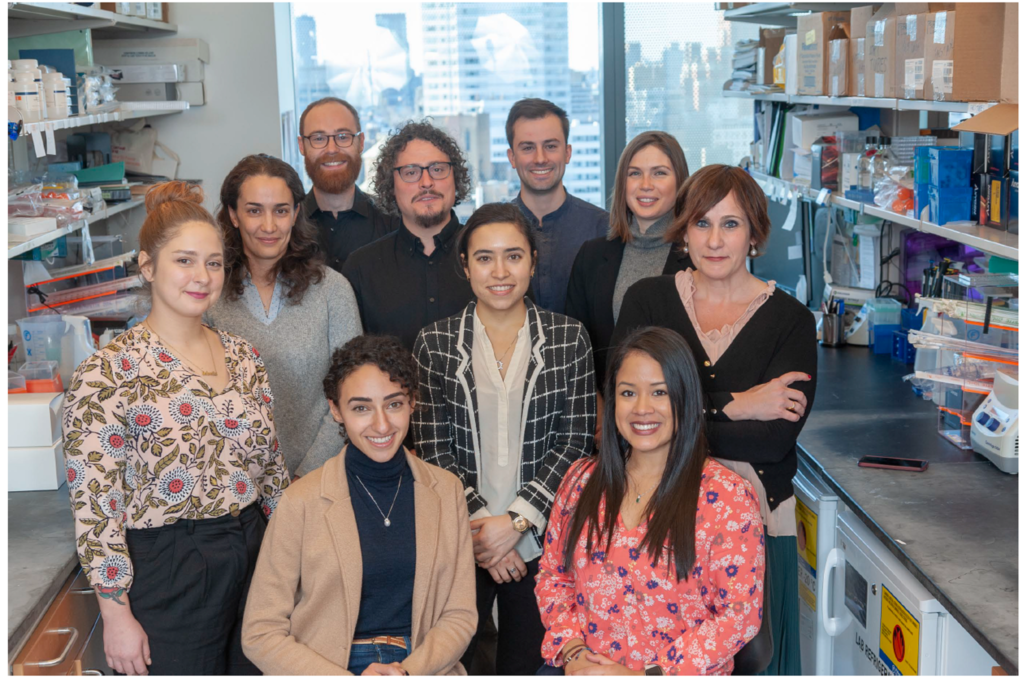Andrea Schietinger, PhD ‹ Back To 2020 Winners
2020 Winners
Assistant Member
Immunology
Memorial Sloan Kettering Cancer Center
Vision
Cancer cells express mutated proteins that are distinct from the proteins in non-cancerous cells, known as “tumor-specific antigens”. Over a century ago, scientists reasoned that our immune system (T cells) should be able to recognize these mutated proteins as “foreign” and eliminate cancer cells. However, during tumor development tumor-specific T cells become dysfunctional, allowing cancers to grow unimpeded. Our goal is to understand why tumor-specific T cells become dysfunctional and develop and test innovative strategies to reprogram these tumor-specific T cells to fight cancer.
(Featured image photo courtesy of Memorial Sloan Kettering Cancer Center)
Andrea Schietinger, PhD received her degree in Pharmacology from the University of Hamburg, Germany, before going on to do her PhD at the University of Chicago, where she studied how aberrant glycosylation of wildtype proteins in cancer cells creates tumor-specific neoantigens. As a postdoctoral fellow at the University of Washington / Fred Hutchinson Cancer Research Center in Seattle, she defined the cell-intrinsic programs of tumor-reactive T cells. Since joining MSKCC in 2015, Dr. Schietinger’s laboratory aims to understand why and how immune cells become unresponsive to growing tumors. Her lab develops genetic cancer mouse models that mimic cancer development in patients, investigate T cell responses over the course of tumor development, and define the transcriptional and epigenetic mechanisms that are responsible for the failure to control and eliminate tumors.
Decoding and Reprogramming Cancer-Specific T cells for Immunotherapy

Our immune system has enormous power to find and destroy invading pathogens. Scientists reasoned that immune cells such as T cells could find and destroy cancer cells too. Using mouse models that mimic cancer development in people we learned that T cells are able to recognize cancer cells, however the T cells lose their ability to kill them. We discovered that T cells remodel their DNA structure immediately after they encounter cancer cells. DNA stores the information that instructs cells how to respond and function. The DNA remodeling took away T cells’ ability to kill cancer cells.
“The Prize will allow my lab to conduct the bold, high-risk high-reward science needed to transform our understanding of tumor-specific T cell dysfunction and to develop novel immunotherapeutic approaches for the treatment of cancer.”

Our goal is to understand how DNA remodeling prevents T cells from functioning. We will study T cells from mouse and human tumors to find the important DNA-binding proteins responsible for remodeling DNA and blocking T cells from destroying cancer cells. We will then design and test new strategies to prevent or reverse DNA remodeling in T cells to restore their killing function. Our goal is to develop new and more effective treatments for patients with cancer.
“Pursuing scientific questions that require you to take risks, employ new technologies and approaches, and integrate intellectual ideas from other research areas; innovation can lead to important and paradigm-shifting findings.”